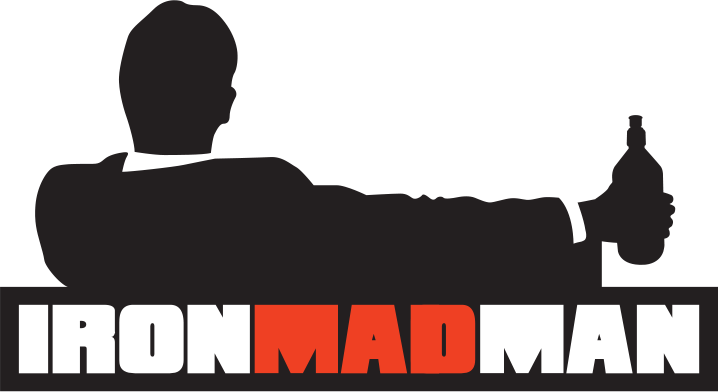CIM Race Report Part I: Rang the Bell, Had My Bell Rung
/The second day after an intense endurance race is always the worst. Gone is the adrenaline high, while cortisol levels have come crashing back to earth. What lingers is the physical soreness that feels closer to the onset of rigor mortis… and looks like it too. You’re just plain tired, physically, mentally, emotionally. And that glorious moment when you truly believed you’re once again young and invincible has cruelly vanished without the decency of a Dear John note.
I like writing a race report during this window. The event is still fresh in my mind, but I’m not so over-stimulated as to miss key moments that led to the race result. The balance between pain, insight and pride is just about even. Plus, I can’t really move…so what else is there to do but write and eat junk food?
I chose to run the California International Marathon because I wanted to qualify for the Boston Marathon. That’s it. Success would be measured in “yes” or “no”, not personal bests or beating a rival. I wasn’t on some metaphorical journey to prove something to myself, or even to inspire others in the same way I tried to at Ironman Vineman this summer. This was about me, plain and simple. I accepted that earning a top-five age-group placement for an Ironman World Championship slot was likely not going to happen in this lifetime. So I moved to the next item on the Bucket List: From “KQ” to “BQ.”
Unfortunately, sometimes life doesn’t always allow for binary outcomes. If my Strava and Garmin race data were the sole determinant for entry into the 2018 Boston Marathon, I’d likely be guaranteed to go. My watch data says I ran 26.2 miles in 3:12:21. Last year, the Boston Athletic Association cutoff time for Boston Marathon qualifying times in my age group was 3:12:32. So, while any time faster than 3:15:00 in my age group qualifies a runner to be Boston-eligible, only runners with times faster than 3:12:32 actually earned a place on the starting line in April. Close to 4,500 age groupers earned BQ times but were not invited to participate in the actual event.
We goin’ to Boston! We goin’ to Boston! We goin’ to…wait…what? My chip time at CIM was… 3:13:07? Why the difference? When you’re running around and through people during the race to avoid traffic, or veer to the aid stations for a quick drink, you’re likely adding subtle amounts of distance to your race. So, in the end, I ran *26.3* miles. I should have noticed this during the race, as the distance grew between miles registered on my watch versus the actual mile markers on the course. In the heat of racing, I figured the course markers had been moved or were positioned slightly off – I never imagined I was dooming my own race.
How easy it is to think the world around us is flawed, without first looking within! And haven’t we all at some point run unnecessarily farther to reach the same finish line? In this case, those extra 44 seconds will likely spell the difference between “yes” and “yes…but no.”
I guess my race performance was kind of like winning the popular vote but losing the Electoral College. (Too soon?)
As I continue to reflect on the overall race experience, it would be easy to grow bitter. I’ve done that before. In college, I earned an internship to write for Sports Illustrated, directly through the magazine (how that happened is another story for another day). Except my university’s journalism department didn’t participate in the Time-Life internship program, so I wasn’t allowed to accept the opportunity. I thought to myself, “Well, that’s as close as I’ll ever get to my dream job. I guess it’s not meant to be.” I wrote for the college newspaper sports section for one more semester, and quit. My soul had been ripped out – I believed my own mopey narrative.
What a crock! I wish I could go back and talk to my younger self. How weak-minded and self-pitying. Failure is not what defines us. How we respond to failure does. I’ve since vowed never to make that mistake again. So, I already signed up for CIM 2017, and I’m not going to leave any room for doubt next time.
That’s the big-picture look at my race. And yes, there's a small chance that maybe the Boston Athletic Association gods will smile upon me and a 3:13:07 will be enough to squeak into the race in 2018.
For more in-depth “runner-focused” insight and analysis from CIM, I’ll post a separate entry tomorrow. I learned some valuable lessons the hard way for better and worse, hopefully so someone else won’t have to.

